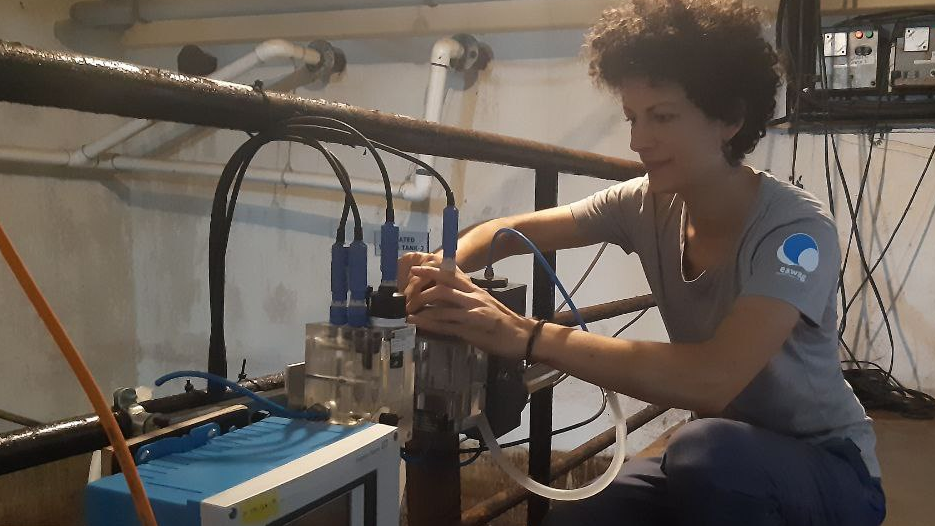Online-monitoring of Recycled Water Quality

Contact: Prof. Eberhard Morgenroth
Process Engineering in Urban Water Management
Focus Country: India
Communities across the world face water supply challenges due to increasing demand,
drought, groundwater depletion and contamination, and aging infrastructure. In many regions, treated wastewater water could be used as an alternative water source, as it provides reliable quantities of water, all while relieving the stress on freshwater resources. The challenge for such systems is that safety, especially in terms of microbial water quality, must be ensured at all times.
In India, the reuse of treated wastewater has been getting increased attention due to rising pressures on water supplies, especially in water-scarce cities. In the city of Bangalore, the local government has issued a zero-discharge policy that requires large apartment building to treat and reuse their wastewater on-site, for example for toilet flushing. However, there is limited information on short-term variations of the microbial water quality from such on-site water reuse systems, as water samples are usually sent to specialised laboratories only once a month.
This project evaluates the microbial water quality from on-site water reuse systems in Bangalore and investigate strategies for real-time monitoring of the treated water. We will implement a range of commercially available and inexpensive online sensors in two existing water reuse systems and take daily samples of the microbial water quality. This data will then be used to train machine learning algorithms to predict the microbial water quality using the sensor measurements. Ultimately, such monitoring algorithms could be used to send out an alarm when water quality targets are not met, and thus prevent residents from getting sick from using insufficiently treated water.
The knowledge generated in this research will be relevant for several audiences:
1. academics who are increasingly interested in field-based evidence of on-site water reuse systems
2. local regulators who will be provided information on how selected systems perform in the field and which parameters are crucial for performance assessment
3. building owners and operators of water reuse systems, for which online monitoring can be linked to an increase in actual performance as well as an increase in trust by the customers.